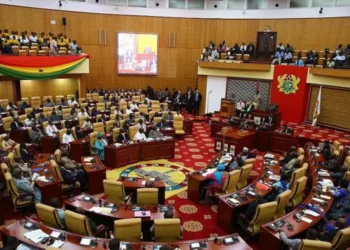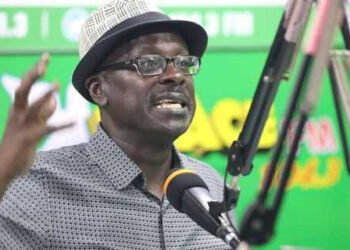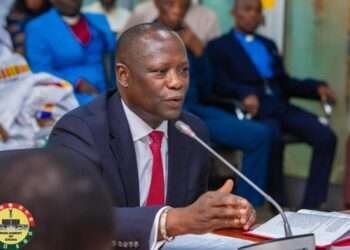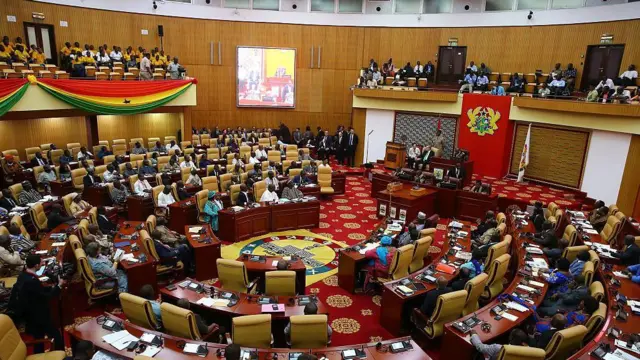In a disheartening display of democratic degradation, reports from various constituencies reveal that money sharing to delegates took centre stage during the recent New Patriotic Party’s (NPP) parliamentary primaries in constituencies with incumbent Members of Parliament.
The blatant distribution of funds and material items has raised serious concerns about the integrity of the electoral process and the future of democratic governance in Ghana.
In the Nsawan Adougyiri constituency, shocking allegations surfaced, claiming that the incumbent Member of Parliament and Majority Chief Whip, Honorable Frank Annor Dompreh distributed an extravagant GHS 7,000 to each of the 985 delegates, accumulating a staggering GHS 6,895,000.
This revelation points to a disturbing trend where political power seems to be attainable through financial influence rather than merit.
Similarly, in the Achiase Constituency in the Eastern Region, monetary incentives and material inducements marred the parliamentary primaries.
The incumbent Member of Parliament, Ahenkorah, reportedly provided each delegate with GHS 5,000 and a full sound system while astonishingly, aspirant George Niako outdid this gesture by offering GHS 7,000 per delegate.
These instances expose a race to outspend opponents, diminishing the democratic process to a mere financial competition.
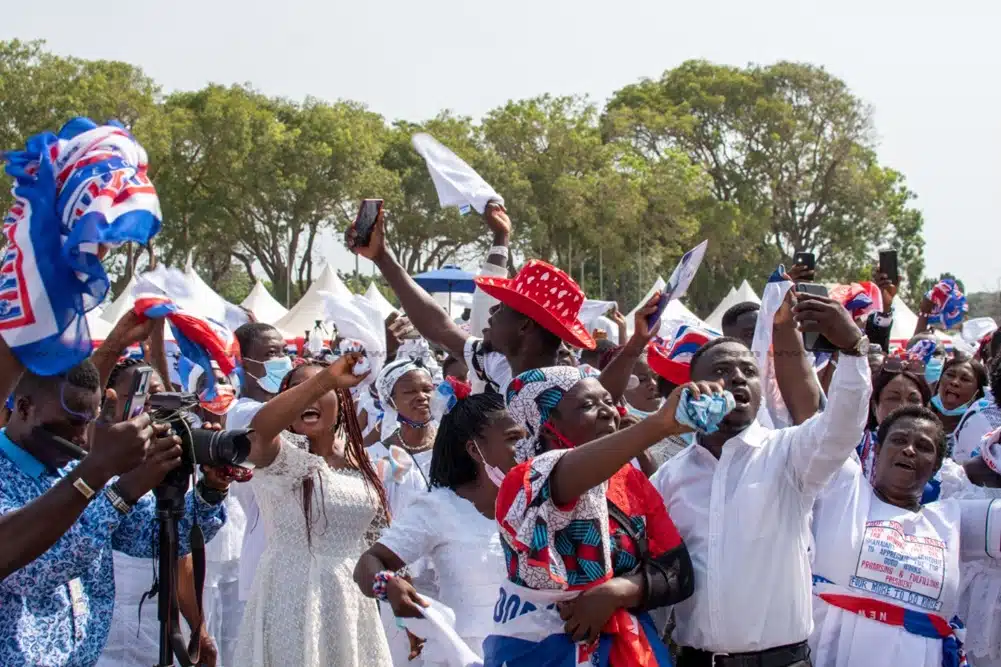
Professor Ransford Van Gyampo, a distinguished Political Science Lecturer at the University of Ghana, condemned these actions, declaring that the outcomes of the January 27, 2024, parliamentary primaries of the governing New Patriotic highlight a very worrying trend that has become part of internal elections in Ghana.
According to Professor Gyampo, the prevalence of vote-buying distorts the very essence of democracy, transforming internal elections into a battle of financial prowess rather than a fair representation of the people’s will.
“The outcome of parliamentary primaries in Ghana now, are democratically filthy, as they are preponderantly, a reflection of vote buying. He who can pay more money to bribe delegates wins in a manner that sacrifices the true choice of constituents”
Professor Ransford Van Gymapo
It is worthy to state that the dangers inherent in such acts of vote-buying are multifaceted and extend beyond the political sphere.
Firstly, it compromises the principle of fair representation, as candidates with deep pockets can unduly influence voters through materialistic benefits. This undermines the democratic ideals of accountability and responsiveness to constituents’ needs.
Secondly, the widespread practice of vote-buying could erode public trust in the electoral process, creating a perception that elections are won not through merit and policy proposals but through financial transactions. This undoubted perception poses a significant threat to the legitimacy of elected officials and the political institutions that govern them.
Furthermore, the focus on financial incentives distracts from the pressing issues that should be at the forefront of political discourse. The act of vote buying incentivizes candidates to prioritize personal wealth accumulation over the development needs of their constituencies, perpetuating a cycle of neglect and underdevelopment.
It is therefore important that stakeholders in Ghana’s democratic process must recognize the urgency of addressing this alarming trend. Immediate steps need to be taken to implement and enforce stringent regulations against vote-buying.
For instance, political parties, the Electoral Commission of Ghana, civil society organizations and law enforcement agencies particularly must work collaboratively to ensure transparent, fair, and ethical internal elections.
Moreover, the National Commission for Civic Education (NCCE) must embark on public awareness campaigns that should emphasize the importance of voting based on a candidate’s qualifications, track record, and commitment to community development rather than succumbing to monetary inducements.
It is only through these concerted efforts that Ghana can safeguard the integrity of its democracy and promote a political environment focused on genuine representation and sustainable development.
READ ALSO: NPP Primaries: List Of Incumbent Members Of Parliament Secure Strong Mandate for 2024



